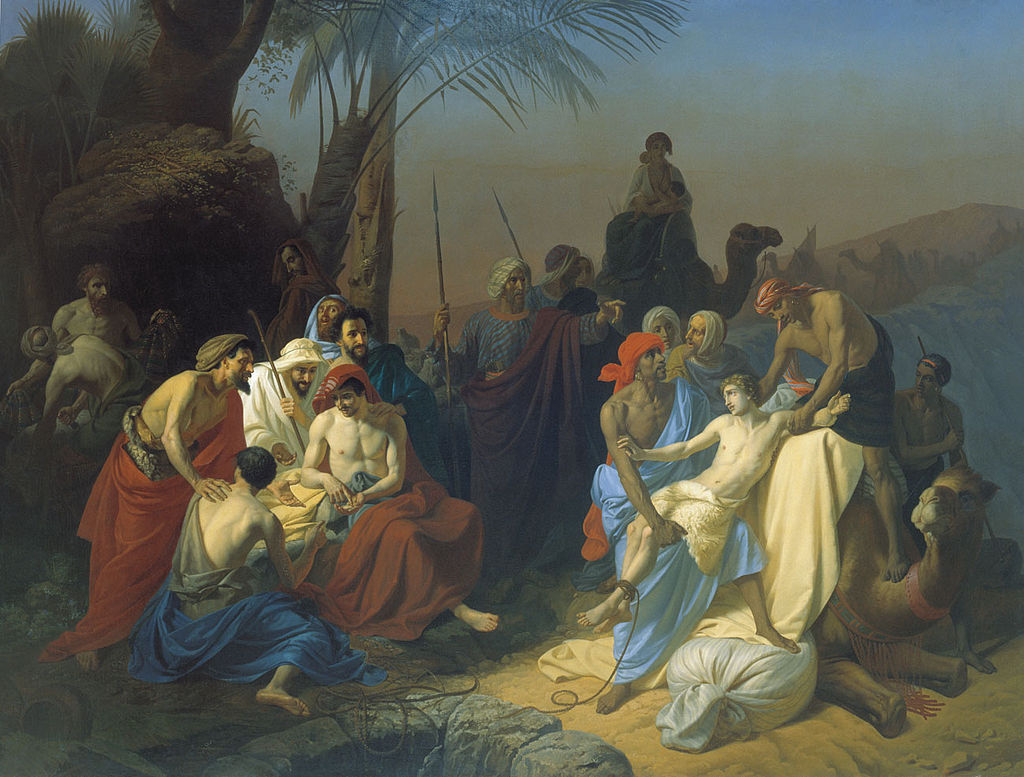
Parashat Vayeshev
“This is the history of Jacob. Joseph was 17 years old” (Genesis 37:2).
For this portion we will bring the opinion of our rabbis, the greatest of theRishonim, about the words of Aggadah and the Midrashim said by Chazal.
We will begin with Rashi. “And this is the history of Jacob (that is, after the Scriptures detailed the chronicles of Esau), these are their dwelling places and their turns of fortune until they came to a permanent habitation… Joseph was 17 years old, etc. Through this they had to turn around and go down to Egypt. This is according to the plain meaning of the text, that each word is stated in its proper way.” Rashi goes on and continues from the Aggadicmedrashim, “But the Aggadah interprets: The Biblical text ascribes the generations of Jacob to Joseph…the former was hated and the latter was hated, etc.,”
About this the Rashbam, his grandson, writes words which enlighten and they are worthy of quotation in full, despite their length. “And those who love wisdom will be wise and understand, that which our rabbis taught us, that the Scripture does not come out of the plain meaning of the text, even though the essential nature of the Torah comes to teach us and inform us, through hints of the plain text, the haggadot, halachot, and the laws, by lengthening its words, by the 32 methods of Rabbi Eliezer, the son of Rabbi Yossi the Galilite, and through the 13 methods of Rabbi Ishmael. The Rishonim, in their piety, tended to follow the interpretations which are the essence and therefore were not made used to the depth of the plain Biblical text. As the sages said (Brachot 28b), “So not overly ply your sons with logic,” and they also said (Baba Metzia 36a), “One who deals in Scriptures has a certain measure, one who deals with the Talmud knows no greater measure.” Therefore they had not been made used to the plain meaning of the Scriptures. As is said in the tractate Shabbat 63a, “I had been studying for 18 years, and I had learnt the whole Talmud, yet I did not know that a verse cannot depart from its plain meaning.” And Rabbeynu Shlomo, the father of my mother, he who enlightened the eyes of exile, who interpreted the Torah, Prophets, and Writings, sought to interpret the plain meaning of the Bible, and even I, Shmuel the son of Meir, his son-in-law OBM, argued with and before him. He admitted to me that had he the leisure he should have given different interpretations according to the plain meaning, which renews itself each day. And now the educated ones will see what the Rishonim interpreted: ‘These are the generations of Jacob: These are the events and happenings which happened to Jacob, etc. [the generations of Jacob are ascribed to Joseph, etc.]’, and all this is a nonsense.”
See, student, that the Rashbam relates to the words of the midrashim as a nonsense; not only that, but he relates to scholars a lack of dealing at depth with the plain meaning of the text. And even his grandfather Rashi admitted to him about this, and therefore Ibn Ezra is not the only one who hold that opinion. To show that there are many others like him, we will cite the Radak on I Kings 18:26, “And in the Aggadah there are things far from the intellect.”
And in conclusion we will copy the words of the Eshkol in the Laws of a Torah Scroll, page 60a, “And Rav Shrira said, ‘The matters learnt from verses through midrash and aggadah are speculations, and there are those which are so, such as the words of R. Yehuda about the matter of “and this for Judah,” etc., and there are many not so, like what Rabbi Akiva said, that the man who poke the wood [in Numbers 15] was Zelofchad, and what Rabbi Shimon said, that the fast of the tenth is the tenth of Tevet, and they recalled the opinion of each and every one, and we, according to his wisdom a person will praise. And so the aggadot that the students of the students said, such as Rav Tanchuma and Rabbi Oshaya and their like. Most are not so, and therefore we do not rely on the words of Aggadah. But the ones of them which are true are those approved by the intellect and from the Scriptures. There is no beginning nor end to the aggadot, etc., and Rav Hai OBM, etc., for our principle is that one does not rely on the aggadah, etc.”
From all of these you, who seeks knowledge, see how exact were the truly great men, Rashi, the Rashbam, Ibn Ezra and others, not to mention Rambam and his son and all the wise and honest scholars. They all stood fast and said that only the intellect determines which of the scholars’ words to bring close and which to reject, that the plain meaning of the texts is the start of a true explanation of the words. It is specifically in the plain meaning of the words that their truth is found and not in the words of aggadot and midrashim and all sorts of stories which have nothing to stand on. Remember and observe that the aggadot will not guide you; only common sense and pure logic will show you the way to go.
Words of True Knowledge
